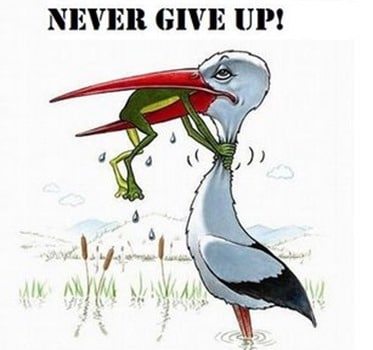Originally posted on April 12, 2014 @ 3:22 PM
Resilience and Safety
 The ability to adapt, ‘bounce back’, learn, cope and manage adversity is an essential attribute when we consider the nature of work and safety. We live in a world where things sometimes go wrong (for a host of reasons). Life is uncertain (risk) and the world is governed by entropy, perfectionist denials of this reality even further constrain the ability of people to recover. People who don’t know how to recover become ‘crushed’ by life, depressed and suicidal. (I am currently coaching Managers in a Mental Health Service in Canberra and the most important word in their discourse is ‘recovery’.) Without recovery, without coping, there is no hope and without hope there is no living. Promises that someone has ‘solved everything’ is anti-resilience talk and life-denying language, we should reject any silly talk like this.
The ability to adapt, ‘bounce back’, learn, cope and manage adversity is an essential attribute when we consider the nature of work and safety. We live in a world where things sometimes go wrong (for a host of reasons). Life is uncertain (risk) and the world is governed by entropy, perfectionist denials of this reality even further constrain the ability of people to recover. People who don’t know how to recover become ‘crushed’ by life, depressed and suicidal. (I am currently coaching Managers in a Mental Health Service in Canberra and the most important word in their discourse is ‘recovery’.) Without recovery, without coping, there is no hope and without hope there is no living. Promises that someone has ‘solved everything’ is anti-resilience talk and life-denying language, we should reject any silly talk like this.
Mistakes are not a problem, the way we respond to mistakes can be. Those who expect and talk in perfectionist discourse encourage anti-resilience because perfectionism drives anger, frustration, social dysfunction, negativity, denial and depression. Many perfectionists are on medication because they can’t cope with an imperfect world. The language of perfectionism drives failure and anti-resilience. The language of perfection drives a lack of compassion, care and empathy. Just ask anyone injured in a zero harm company how they experienced care and compassion, or was it denial, repression and isolation? I receive letters constantly from people from zero harm organisations who once injured, are treated like lepers.
There is no special paradigm to solve all problems, there is no special psychic insight into the human future this is god talk and, a denial of uncertainty and risk. Uncertainty is not an evil, neither is risk and any discourse to suggest so takes from humans the very things that help us learn, grow and develop. So, people will get hurt (not by intention) and people will die, even you and I so, let’s not talk perfection nonsense. Let’s rather understand that one can’t develop resilience without risk. Risk aversion is life denying and engenders anti-resilience. The best way to help children grow is not to tell them there will be no pain and suffering but rather to teach them how to cope with it when it comes.
One of the best skills we can have in times of stress and when things go wrong is the knowledge and expectation that we will cope. Coping is the foundation of human survival and resilience. Resilience is not something that can be ‘engineered’, what a crazy notion that is. Resilience is learned, not manufactured. The ability to know that time heals, that things pass, that you can’t change the past and that there is a tomorrow, helps create a positive resolve and engenders energy to work through issues.
In the number of crisis situations I have been involved the worse person to have about in a crisis is some naïve simplistic perfectionist. People have the most amazing resilience to overcome some pretty terrible stuff but you won’t get to first base with a perfectionist mindset.



Do you have any thoughts? Please share them below